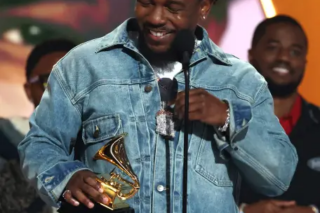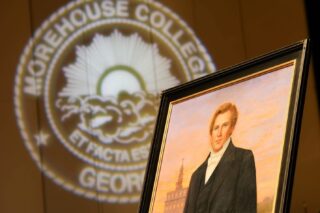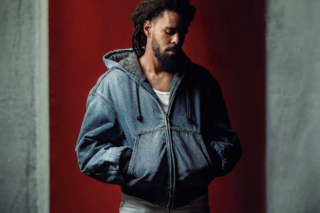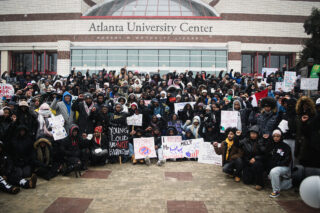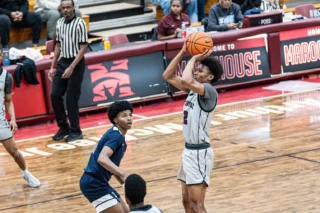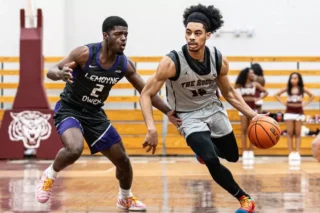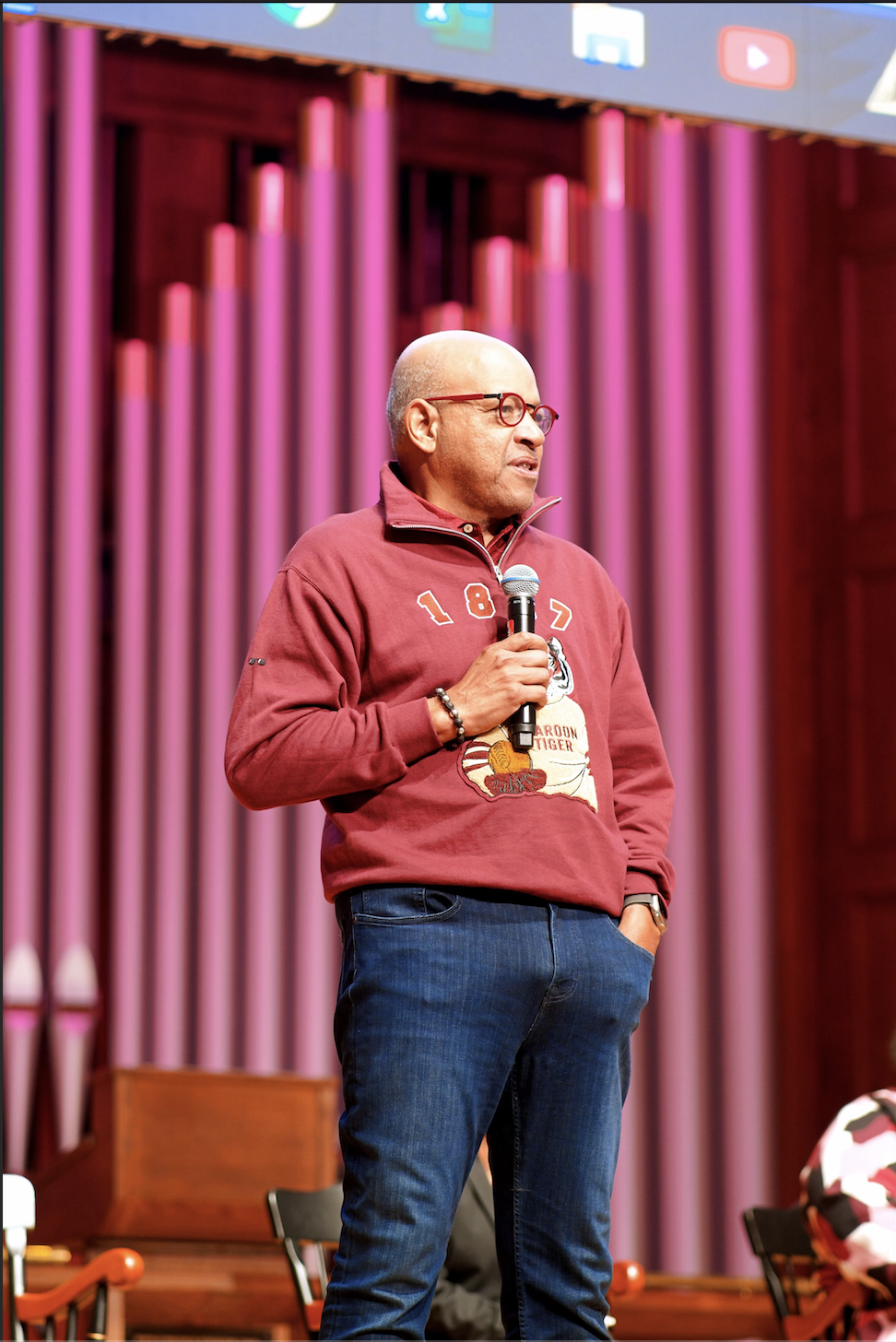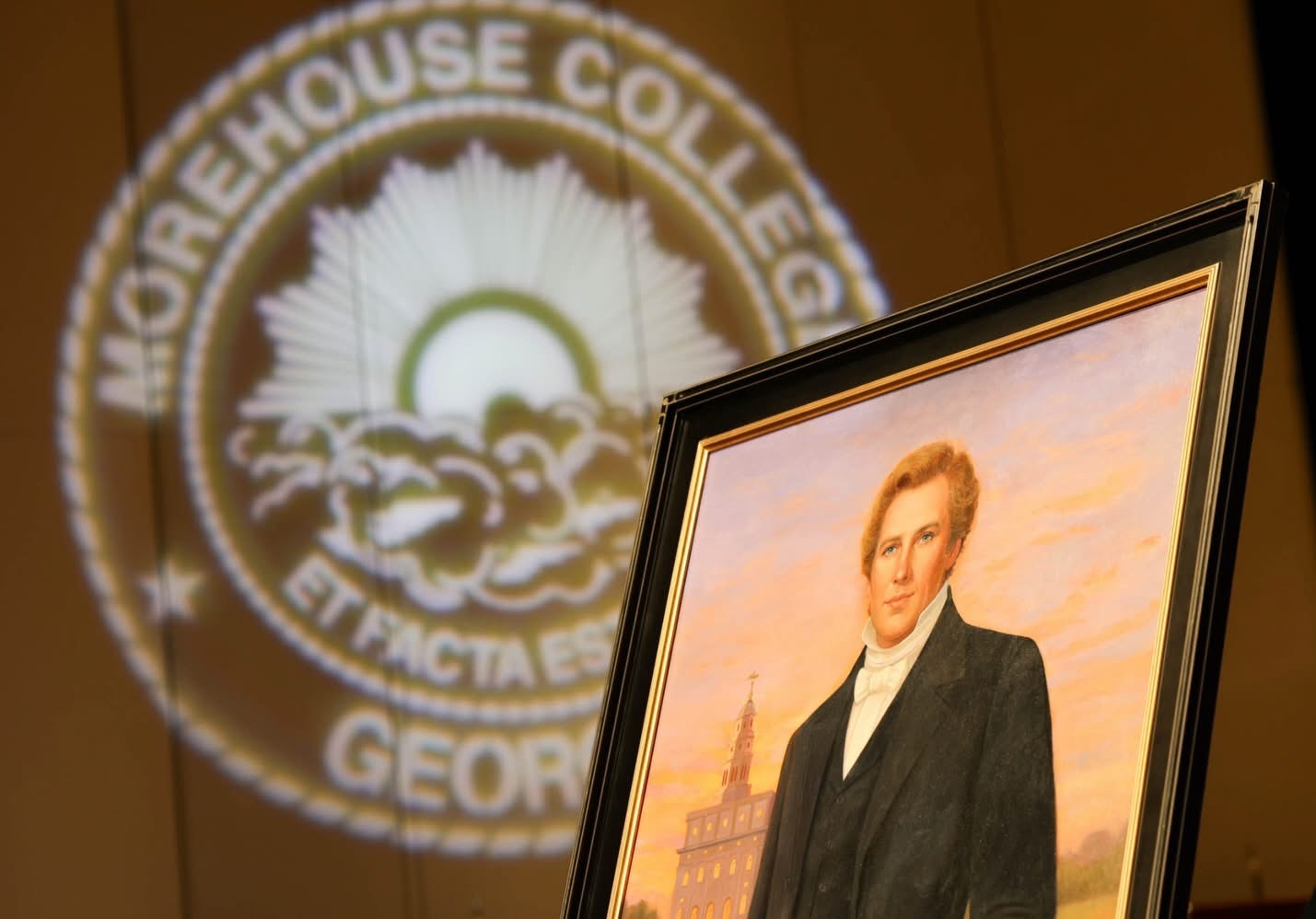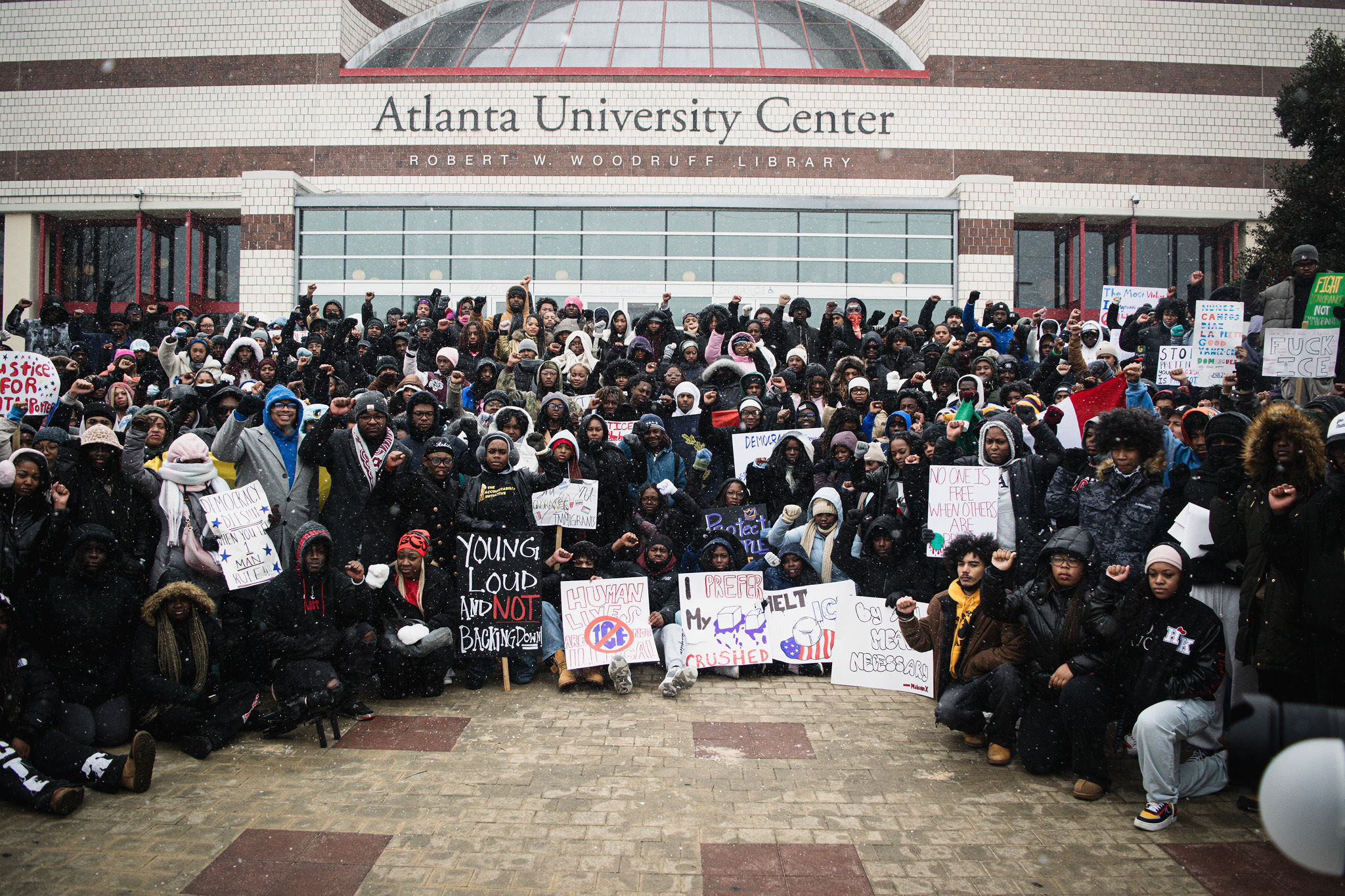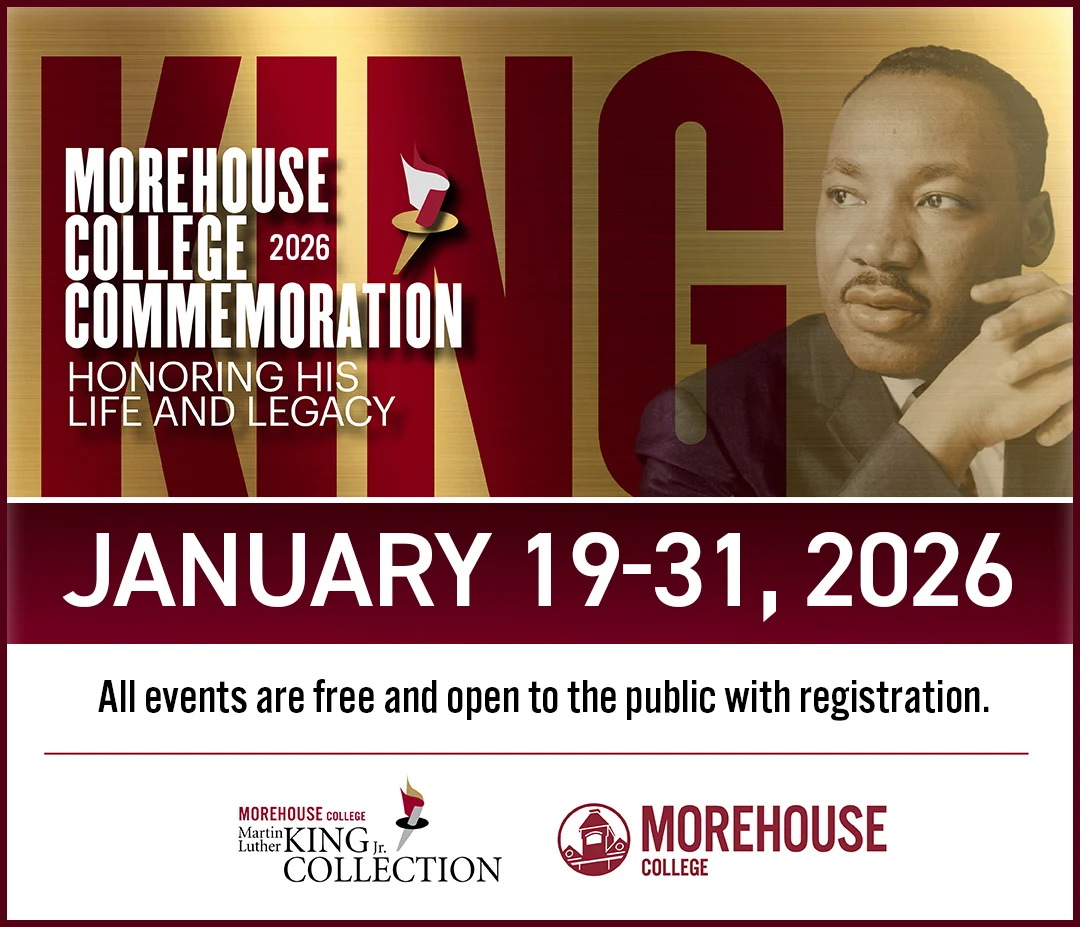Image via: Kollin Washington, Morehouse Alumni
By Colin Royal, Editor in Chief
Dr. David Thomas has served as president of Morehouse College for the last seven years. The current students of Morehouse were brought in during his tenure, and they will see him off as he transitions into his new position. He has announced that after June 30th next year, he will rest, travel, spend time with family, and then join the Morehouse faculty.
As students reacted to this great change, the Maroon Tiger wanted the chance to ask Thomas — why?
Current Editor in Chief Colin Royal conducted the following interview over Zoom. Thomas spoke from his home, the Davidson House, reflecting on his presidency and explaining his motivation for the momentous change.
Royal: What is your goal for this upcoming school year?
President Thomas: I want us to complete our capital campaign, which at this point means raising about $200 million. So I will very much be focused on fundraising.
I also am excited that right now, if you go over to the tennis courts, they’re being torn up to build our new residence halls. So I think we’re not only on track but ahead of schedule to see those go up and then break ground on the new student center.
I also am looking forward to the expansion of some of our academic programs – our Black Men’s Research Institute, our Center for Black Entrepreneurship, and our program that focuses on incarcerated individuals and returning citizens. Morehouse faculty and students are working with those individuals to increase their chances as they reenter civilian life after incarceration, so that they have both skills and certifications that will help them find their way to viable employment and roles in the community, and reduce their recidivism.
Royal: What was your process for deciding to end your presidency? Why now?
President Thomas: First of all, I’ve tried to build a leadership team and a vision for Morehouse that is not David Thomas centric. I think the greatest test of how successful a leader has been is what the organization does after they’ve gone: whether you build a class or whether you develop a leadership team that understands the direction and is committed to it.
Leaders die in office and if the dream dies with the leader, the leader was ineffective. If the vision collapses because I’m not in the seat, then I was not a very effective president. Also, I think the best time for a leadership transition is when the institution is strong. What often happens is, we wait until everybody’s ready for the leader to go to get a new leader.
That’s usually because things are broken. So when I came, things were broken. Financially, there was a lot of trauma that had been experienced and my predecessor had had a major conflict with the board and been let go. The interim died two months after being appointed. We hadn’t invested in our infrastructure in decades. You can just go down the line.
That’s not a great moment for a leadership transition. Whereas now we are in the best financial condition we’ve been in ever in the history of the college. We are putting up new buildings for the first time in almost 20 years. We have increased our funding for scholarships by more than half and increased our endowment.
Our reserves are such that if a calamity happened in the economy next year and we could not take dollars from the sources that we now take revenue from, we could run the college for an entire school year. That means that the next leader can really come in and focus on the future, not on fixing current problems.
The other thing about why now, I know it’s hard to believe (said with a laugh), but despite my youthful appearance, when I step down, I’ll be turning 69 years old. And I think creating the opportunity for someone to come in who might be 10 to 15 years younger than me will just bring in a kind of fresh energy and fresh eyes. You know, it’s time for us baby boomers to leave the stage.
Royal: For that person who ends up leading the next generation of what Morehouse will be, what is your advice to them? What would you say is the best lesson that you have learned during your tenure?
President Thomas: Lesson No. 1: Don’t overreact to the resistance. People resist change. Doesn’t mean they can’t change, but their initial reaction is to resist change. Oftentimes, it has nothing to do with you – the leader. It’s all about them. So you have to listen to them and figure out why they may be resisting change.
Second, Morehouse is a small institution that casts a long shadow, so we have to operate on a daily basis as a college, but we should be thinking like a national and international university. We’re not global enough. We should be even more prominent speaking to the challenges that our country and the world is facing.
I just see huge potential for Morehouse to be one of the institutions that has moral authority in the world to speak to the most important issues and challenges facing us, not technologically, but as human beings. Issues of peace, issues of social justice, issues of access and opportunity and fairness. Cross-cultural engagement. I’m hoping that the next leader of Morehouse will have a truly global and humanitarian orientation and be willing to become a voice for that in the world.
Royal: What is your accomplishment that you are most proud of during your tenure?
President Thomas: I guess there are most important accomplishments. One is, I enhanced the resources of the university. People don’t think about it, but in many ways, universities are economic institutions. If we don’t have the resources to deliver on our promises, we either go out of business or the quality of what we do deteriorates to an extreme.
So, creating that financial stability, and therefore, creating the platform for the next president to come in and really be able to focus on the future is a great accomplishment.
I think my second most important accomplishment was initiating the creation of Morehouse online, which is focused on men who have some college (experience).
There are 3.5 million black men in this country with some college but no degree, and now we’ve had two graduations. The first one, we had seven graduates from our online program. This year we had 30.
When you talk to them about what it means to graduate from Morehouse, and not just because it enhances their career prospects, (they say) because it makes them feel complete in their journey as black men.
The last thing I think I did pretty effectively was manage COVID. We at Morehouse were the first school in the NCAA to declare that we were not going to play football in the fall of 2020, before any of the Ivy League.
And it set the tone for the country because we said we’re going to put students first, and then we proceeded to manage COVID and have one of the lowest COVID infection rates in the country at colleges and universities. So we were better than Georgia Tech, University of Georgia, Emory, Georgia State, Alabama.
Some people said to me that, well, you know, it’s going to be tough for Morehouse because you have black men and they don’t take care of themselves. And, you know, they ignore these health things. You guys were fabulous. So those would be my three greatest accomplishments.
Royal: Tell us one thing you wish you had accomplished, or one thing you might have left on your plate that you wish you had gotten to.
I wish I had already raised the $500 million for the capital campaign. And right now we’re at $300 million. And I wish that I had met my goal to raise our graduation rate to 70% plus.
Royal: As you transition from president to faculty, is there anything that you want to leave students with as you enter into this new position?
President Thomas: I hope that our students who’ve been on my watch leave with a profound understanding that Morehouse is an important institution for the world, and therefore they must make an important contribution to it to make it a better place.
Copy Edited by Ron Thomas, Head of the Morehouse Journalism Department

